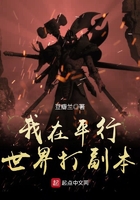The plebeians of that time were the only class outside of the existing official society.It was outside the feudal, as well as outside the middle-class Organisation.It had neither privileges nor property;it was deprived even of the possessions owned by peasant or petty bourgeois, burdened with crushing duties as much as they might be; it was deprived of property and rights in every respect; it lived in such a manner that it did not even come into direct contact with the existing institutions, which ignored it completely.It was a living symptom of the dissolution of the feudal and guild middle-class societies, and it was at the same time the first precursor of modern bourgeois society.
This position of the plebeians is sufficient explanation as to why the plebeian opposition of that time could not be satisfied with fighting feudalism and the privileged middle-class alone; why, in fantasy, at least, it reached beyond modern bourgeois society then only in its inception;why, being an absolutely propertyless faction, it questioned institutions, views and conceptions common to every society based on division of classes.
The chiliastic dream-visions ancient Christianity offered in this respect a very serviceable starting-point.On the other hand, this reaching out beyond not only the present but also the future, could not help being violently fantastic.At the first practical application, it naturally fell back into narrow limits set by prevailing conditions.The attack on private property, the demand for community of possession had to solve itself into a crude Organisation of charity; vague Christian equality could result in nothing but civic equality before the law; abolition of all officialdom transformed itself finally in the Organisation of republican governments elected by the people.Anticipation of communism by human fantasy was in reality anticipation of modern bourgeois conditions.
This anticipation of coming stages of historic development, forced in itself, but a natural outcome of the life conditions of the plebeian group, is first to be noted in Germany, in the teachings of Thomas Muenzer and his party.Already the Taborites showed a kind of chiliastic community of property, but this was a purely military measure.Only in the teachings of Muenzer did these communist notions find expression as the desires of a vital section of society.Through him they were formulated with a certain definiteness, and were afterwards found in every great convulsion of the people, until gradually they merged with the modern proletarian movement.
Something similar we observe in the Middle Ages, where the struggles of the free peasants against increasing feudal domination merged with the struggles of the serfs and bondsmen for the complete abolition of the feudal system.
While the first of the three large camps, the conservative Catholics, embraced all the elements interested in maintaining the existing imperial power, the ecclesiastical and a section of the lay princes, the richer nobility, the prelates and the city patricians -- the middle-class moderate Lutheran reform gathered under its banner all the propertied elements of the opposition, the mass of the lower nobility, the middle-class and even a portion of the lay princes who hoped to enrich themselves through the confiscation of the church estates and to seize the opportunity for establishing greater independence from the empire.As to the peasants and plebeians, they grouped themselves around the revolutionary party whose demands and doctrines found their boldest expression in Muenzer.
Luther and Muenzer, in their doctrines, in their characters, in their actions, accurately embodied the tenets of their separate parties.
Between 1517 and 1525, Luther had gone through the same transformations as the German constitutionalists between 1846 and 1849.This has been the case with every middle-class party which, having marched for a while at the head of the movement, has been overwhelmed by the plebeian-proletarian party pressing from the rear.
When in 1517 opposition against the dogmas and the organisation of the Catholic church was first raised by Luther, it still had no definite character.Not exceeding the demands of the earlier middle-class heresy, it did not exclude any trend of opinion which went further.It could not do so because the first moment of the struggle demanded that all opposing elements be united, the most aggressive revolutionary energy be utilised.
and the totality of the existing heresies fighting the Catholic orthodoxy be represented.In a similar fashion, our liberal bourgeoisie of 1847 were still revolutionary.They called themselves socialists and communists, and they discussed emancipation of the working class.Luther's sturdy peasant nature asserted itself in the stormiest fashion in the first period of his activities."If the raging madness [of the Roman churchmen] were to continue, it seems to me no better counsel and remedy could be found against it than that kings and princes apply force, arm themselves, attack those evil people who have poisoned the entire world, and once and for all make an end to this game, with arms, not with words.If thieves are being punished with swords, murderers with ropes, and heretics with fire, why do we not seize, with arms in hand, all those evil teachers of perdition, those popes, bishops, cardinals, and the entire crew of Roman Sodom? Why do we not wash our hands in their blood?"This revolutionary ardour did not last long.The lightning thrust by Luther caused a conflagration.A movement started among the entire German people.In his appeals against the clergy, in his preaching of Christian *******, peasants and plebeians perceived the signal for insurrection.















